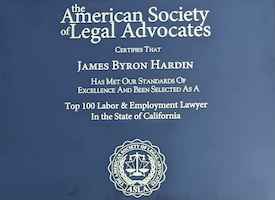What is an Independent Contractor in California?
California has greatly revised the way it views independent contractors in the workplace. The easiest way to understand the difference between an employee and an independent contractor in California is by establishing an understanding of one in contrast to the other.
As an independent contractor, you are a self-employed individual under contract that provides a business with goods and services. The definition for employee is very similar to that of an independent contractor with one important distinction, control. Employees of a company are under stricter controls versus an independent contractor, for example a contractor can negotiate their rate on a project basis and is able to pick and choose assignments.
The definitions of an employee and contractor are so similar that the California Supreme Court decided to create further clarification with a system known as the ABC Test. The ABC test helps determine when a worker is considered an independent contractor rather than an employee.
Uthe ABC test, a worker is considered an employee and not an independent contractor, unless the hiring entity satisfies all three of the following conditions:
- The worker is free from the control and direction of the hiring entity in connection with the performance of the work, both under the contract for the performance of the work and in fact;
- The worker performs work that is outside the usual course of the hiring entity’s business; and
- The worker is customarily engaged in an independently established trade, occupation, or business of the same nature as that involved in the work performed.
Why Does It Matter?
Knowing the difference between an independent contractor and an employee is important because often times workers are misclassified in the workplace. Employee misclassification occurs frequently because it can be an opportunity for a company to save money, even though it is unlawful.
As a full-time employee, you are entitled to retirement plans, healthcare coverage, Medicare, worker’s compensation, social security, business reimbursements, income tax withholdings, overtime wages, and unemployment insurance. If your job responsibilities align with an employee, but you are misclassified as an independent contractor, your rights are being violated. Misclassification can not only result in significantly less compensation for you, but it also denies the government funds needed to sustain public benefits.
If you believe that you have been misclassified as an independent contractor and have unpaid overtime wages and are in need of the healthcare plans afforded to full-time employees, it is crucial that you take action. There are many legal remedies that can be taken and often times can result in monetary damages. Reach out to our team today to understand what you can do to protect your rights as a worker in the state of California.





















